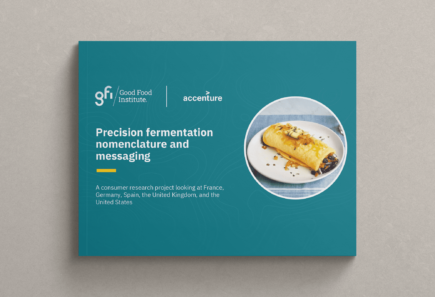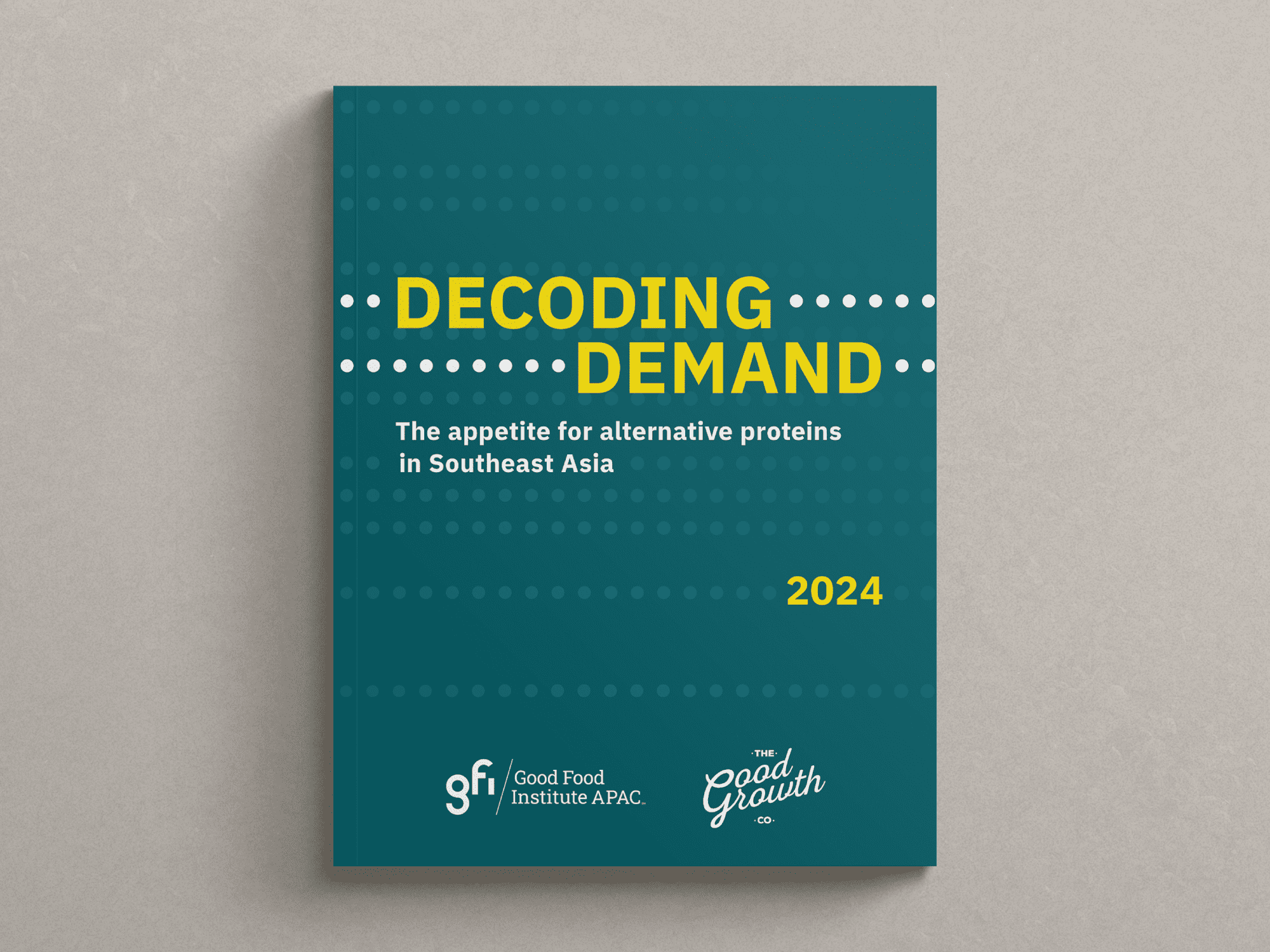Consumer insights
Explore our consumer research that uncovers segments, demographics, perceptions, motivations, and adoption of alternative proteins.

Consumer demand for alternative proteins
More consumers than ever are seeking to reduce their meat consumption and are interested in alternative proteins, and appeal is not limited to vegetarians, vegans, or even flexitarians. Many omnivores—representing about three-quarters of the U.S. population—are interested in and recognize various benefits to adding plant-based meat to their diets. In fact, the majority of consumers who purchase plant-based meat also purchase conventional meat. For emerging categories like fermentation-enabled products and cultivated meat, smaller (but still meaningful) numbers of consumers express interest today, reflecting lower levels of consumer familiarity and need for consumer education.
Taste and price show up consistently in research as the top factors that influence consumers’ purchasing decisions when it comes to meat and protein (and food in general). These expectations must be met for consumers to consider (and continue to purchase) alternative proteins, and there is still work to be done on that front. Many consumers feel plant-based meat lags conventional meat on both taste and price and say these are key factors leading them to not buy in the category. Indeed, retail sales data shows plant-based meat products often cost two to three times more than their conventional counterparts. Consumer sensory research indicates some plant-based meat products have made progress on taste parity with conventional meat but many have room to improve.
While taste and price are table stakes, health is also a top driver of meat and protein choice and a key motivating factor for many consumers to choose plant-based meat (and consider other alternative proteins). However, health needs are diverse and not equally important to all consumers. For example, some consumers focus on benefits like heart health or weight loss, while others focus on maximizing protein or getting more vitamins and minerals.
Research shows that sustainability and animal welfare may not be primary motivators for most consumers to change their eating behavior today, but many consumers express awareness of these issues, and there may be opportunities to tap into this latent concern.
Consumers tend to attribute similar benefits around attributes like health and sustainability to various alternative protein categories, including plant-based meat and emerging categories like fermentation-enabled products and cultivated meat.
Dive into our body of consumer insights to learn more about which consumers are most engaged with alternative proteins, what drives adoption and interest, perceptions of labeling and naming conventions, and more.

Plant-based meat consumer segmentation
Plant-based meat is at a critical stage of category development where expanding beyond early adopters and occasional use are necessary to drive growth, and a more nuanced understanding of consumer demand is needed. This research identifies the addressable market for plant-based meat and profiles six consumer segments with distinct attitudes, needs, behaviors, and demographics to provide a framework for understanding the unique types of consumers and opportunities in the market.

Consumer snapshots of alternative proteins
This set of reports summarizes consumer familiarity, perceptions of, and interest in plant-based meat, cultivated meat, precision-fermented dairy, and mycoprotein in the United States. We survey thousands of diverse Americans annually to understand their outlook on alternative proteins and will continue to make the results of this research available to the public as the categories evolve.
Consumer perspectives on plant-based meat
The U.S. plant-based meat category has experienced significant growth over the past 10 years, driven by product innovation and marketing strategies targeting conventional meat-eating consumers. Many Americans now report having tried plant-based meat, and even more express interest. However, a minority currently buy regularly, and even fewer buy frequently. Expanding beyond these early adopters to the mainstream market and increasing frequency are key levers to grow plant-based meat consumption. Our research focuses on understanding how to motivate consumers to choose plant-based meat and identifies opportunities for messaging, product development, and more.

U.S. consumer health perceptions of plant-based meat
This factsheet summarizes recent research about U.S. consumer health perceptions of plant-based meat.

Americans understand plant-based meat labeling
Research shows that a large majority of American adults understand what plant-based meat products are based on current labeling.

U.S. household shopper insights for plant-based meat
Discover key insights on U.S. households buying plant-based meat. Explore data on demographics, purchase habits, motivations, barriers, and more.

Retail point-of-purchase motivators for plant-based foods
Explore tactics to increase consumers’ purchase intent for plant-based products at retail, optimal category descriptors for plant-based food, and more.

Resource
Analyzing plant-based meat & seafood sales
Dive deep into sales and consumer data for plant-based meat and seafood. Find key category insights, size, sales growth drivers, purchase dynamics, and consumer insights.
Consumer perspectives on other alternative proteins, including cultivated meat and fermentation-enabled products
Alternative protein categories including fermentation-enabled products and cultivated meat are at various stages of market development and availability and thus face unique considerations from a consumer perspective. Notably, many consumers report relatively low levels of familiarity with these categories today. Our research focuses on understanding consumer perceptions as well as exploring opportunities around value proposition and category nomenclature as these products become more widely available.
Global consumer insights
We conduct consumer research not just in the United States, but also through our global affiliates. Explore their pages to learn more about their region-specific consumer insights.
Sign up to receive the latest insights
Our Alternative Protein Opportunity industry newsletter delivers the latest market and consumer research, policy updates, GFI resources, and events and opportunities to your inbox.








